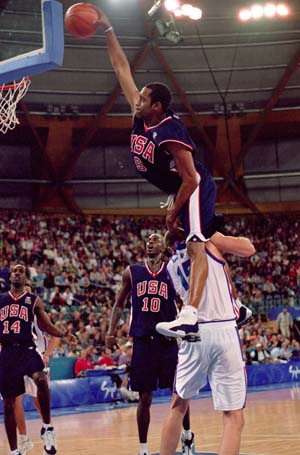It's hard to build teams when we secretly hate each other
Quick observation for what seems like another 'No one is working so no one will read this post' kind of day.
First, two pieces related to teamwork and group dynamics that caught my attention, then some thoughts from me follow:
One - Yup, Your Girlfriends are Purposely Posting Those Ugly Pictures of You on Facebook - the title sort of explains it all, essentially, we like making each other look bad on Facebook
Two - Microsoft's Downfall: Inside the Executive Emails and Cannibalistic Culture that Felled a Tech Giant, the big point here, 'Stack Ranking', a performance management process that forces managers to rate employees into high, average, and low performance buckets, with set percentages of each, effectively crippled Microsoft's ability to innovate, as staff became obsessed with the rankings themselves, and competing with each other, instead of the company's real external competitors.
----------------------------------------
Over and over again we read, think, and explore ways to make our organizational teams work with each other more effectively, efficiently, and simply better. It seems to be a common assumption that working well in teams, and the ability for organizations to harness and mobilize teams of disparate and often dispersed and virtual team members to meet the needs of a fast-changing business environment is one of the keys to long-term, sustained organizational success.
I suppose I believe that is true. Certainly in larger organizations, in order for individuals to progress their ideas, to make important contributions, and to impact on a major scale the organization's efforts and direction will usually entail and require that individual to operate in a team concept. In large organizations, and even in smaller ones usually, significant projects don't advance much past the 'idea' stage without a pretty high level of team-based work.
But the trouble with all this team-based work, and at least one of the reasons, (at least I am submitting this as a possible reason), why it can be so hard to keep the momentum from one person's great idea alive as the singular idea transitions to a collective or team goal?
It's because we all secretly hate each other. Well, perhaps that is too strong. If not hate, then for many of us there exists a quiet, below the surface, but undeniable realization that business and life are often seen as a zero-sum game, or said differently, when you look good, I on the other hand, look a little bit worse. We know that credit, accolades, rewards, esteem - all the good stuff that comes from achievement, are usually not spread around equally. Even if we are on the same team, working towards the same goals, that for many of us we are certain that the honors will be parsed out individually.
It's not an easy game for leaders, getting to the right balance of team players, who are happy to see the team succeed and hope the rising tide will lift them up as well, and superstars, who think the team only wins because of them.
It's easy in sports where we see this all the time, each team a mix of superstars and role players. It tends to work there because everyone knows who the stars are, or at least who are supposed to perform like stars.
At your workplace I imagine it is a little bit harder. Maybe everyone there is a star. Or everyone wants to be a star and naturally sees the guy in the next chair as competition. And programs like stack ranking just ensure the organization is seen as sanctioning the internal competition.
Good luck sorting that out.

 Steve
Steve



